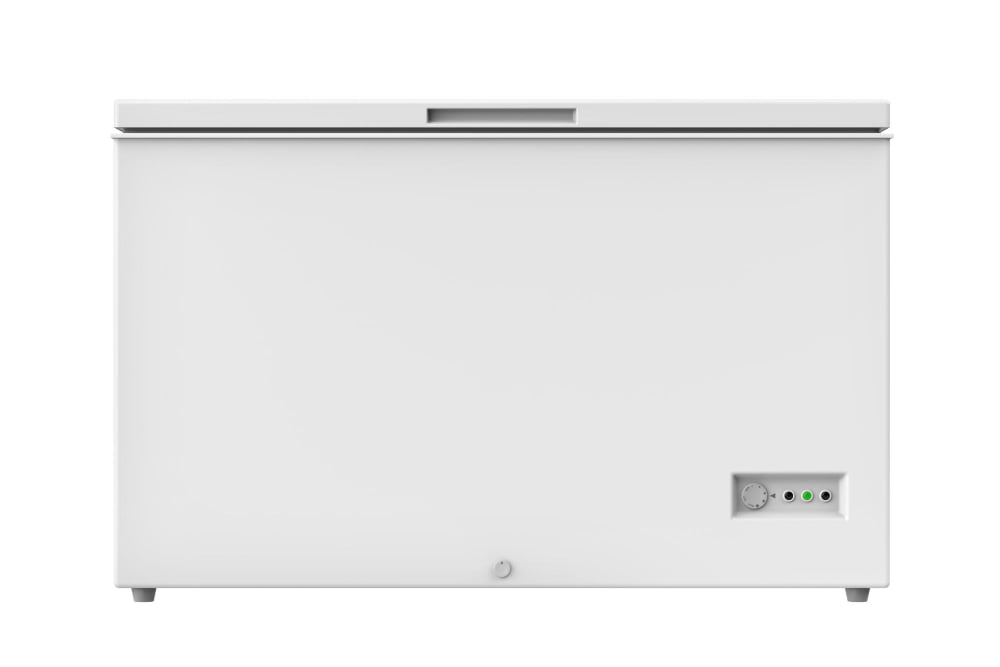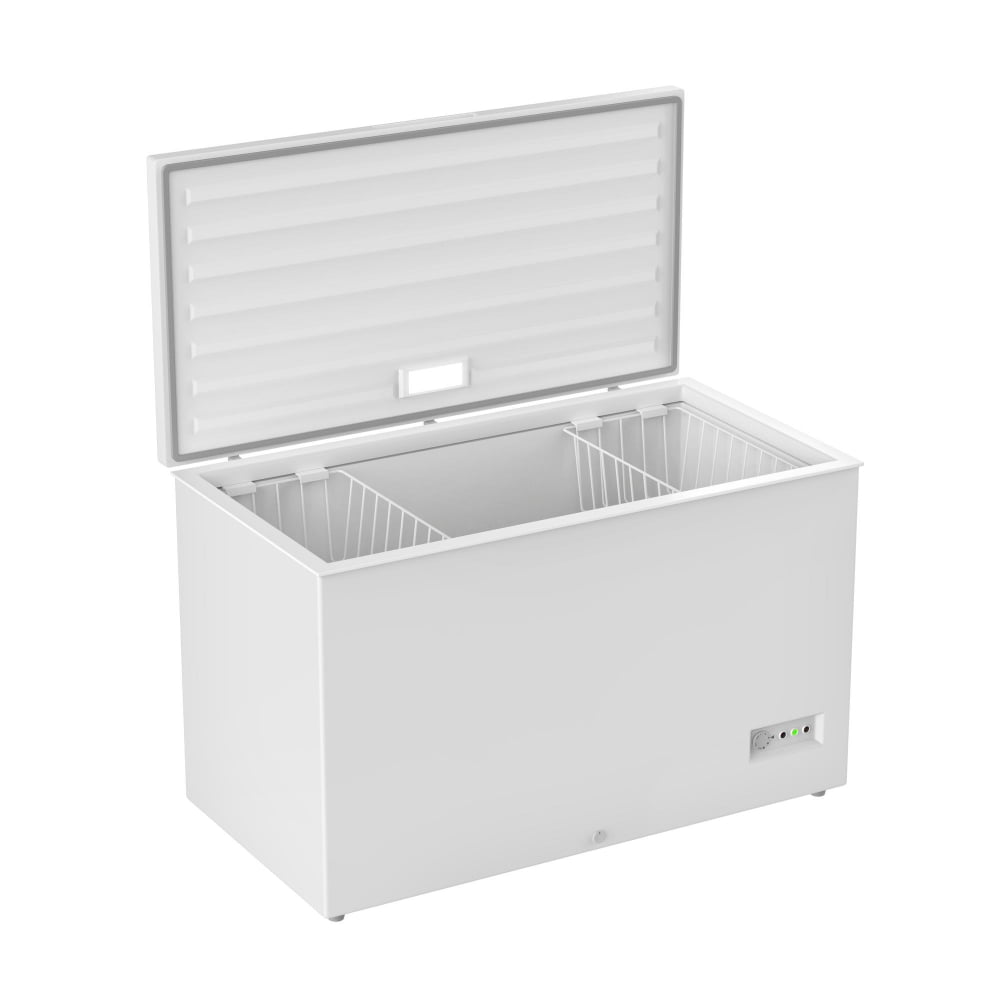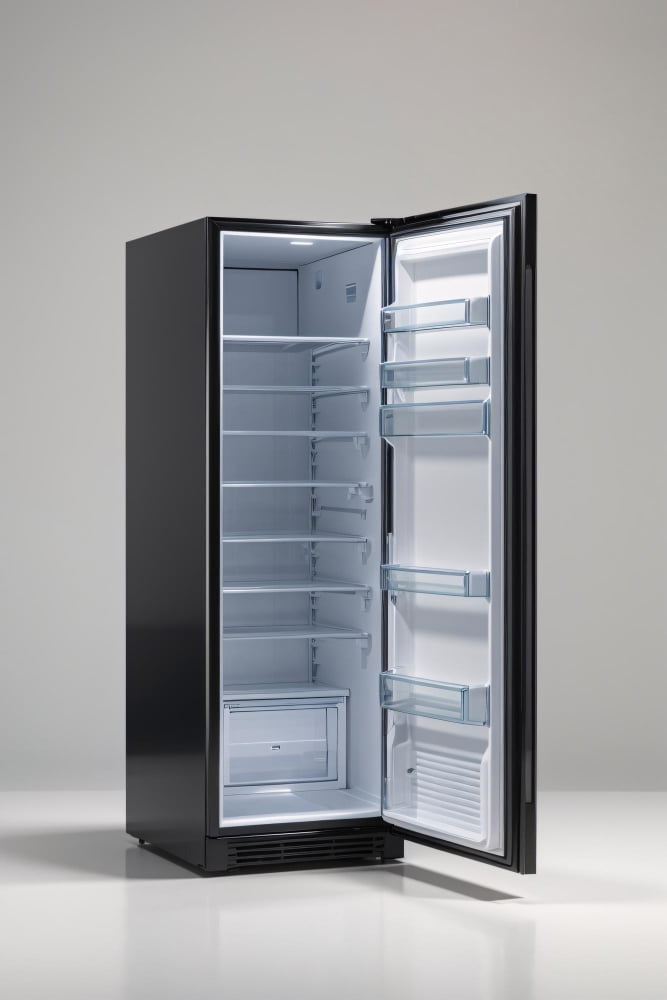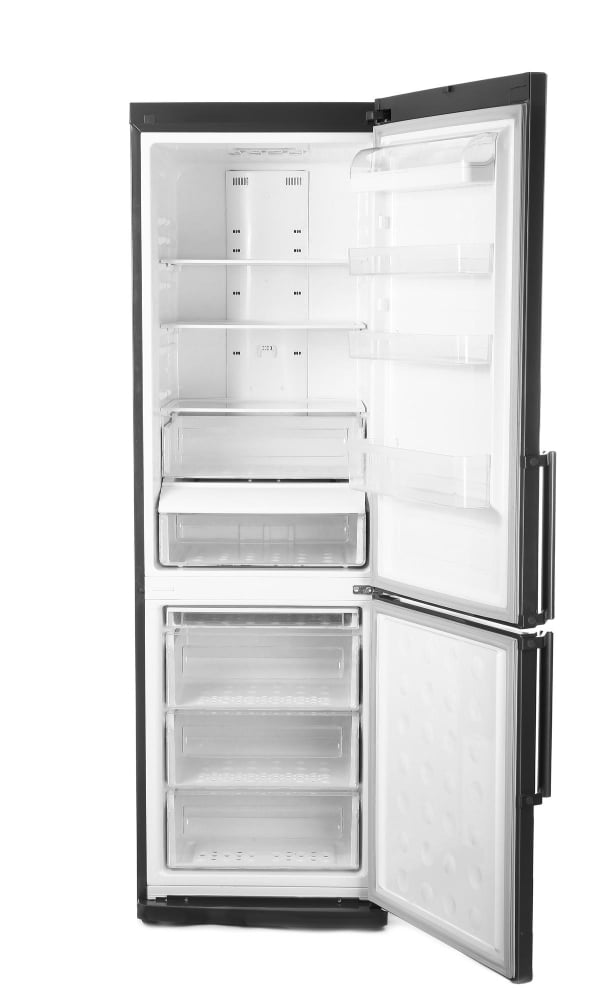A garage-ready freezer is a specially designed appliance that can function efficiently in extreme temperature ranges typically experienced in garage environments.
A garage-ready freezer is specially designed to withstand the fluctuating temperatures and humid conditions that are common in most garages. Unlike standard freezers, these units have enhanced insulation and a more robust compressor that can maintain consistent internal temperatures, even when the garage’s temperature varies dramatically.
This article will delve into the specifics of what makes a freezer garage-ready, the benefits of having one, and how to choose the right model for your garage. It’s the comprehensive guide you need for all things related to garage-ready freezers.
Key takeaways:
- Garage-ready freezers can function efficiently in extreme temperature ranges.
- These freezers have enhanced insulation and a robust compressor.
- They can maintain consistent internal temperatures in fluctuating garage environments.
- Garage-ready freezers come in chest or upright variants.
- Consider factors like size, temperature control, energy efficiency when choosing one.
Defining Garage Ready Freezer

A ‘Garage Ready‘ freezer is a unique type of freezer designed to withstand fluctuations in external temperatures that a regular indoor freezer may not handle effectively. Unlike traditional freezers, these units efficiently function in both hot and cold garage conditions without compromising their performance.
Due to varying garage climates, standard freezers may fail to maintain optimal conditions for food preservation. Therein lies the importance of a ‘Garage Ready‘ freezer since it possesses an intelligent sensor system. This mechanism adapts to temperature variations, enabling the freezer to operate effectively in non-climate-controlled zones like your garage.
Typically, these freezers feature a rugged make that withstands extreme temperatures without consuming excess energy. They are built to provide a stable freezing temperature, ensuring your food remains well-preserved. Furthermore, most ‘Garage Ready‘ freezers are frost-free, minimizing the need for regular defrosting and providing convenient maintenance.
The beauty of ‘Garage Ready‘ freezers extends to their design appeal. They are space-efficient and often come in chest or upright variants, suitable for various garage layouts. Ultimately, these models offer the functionality of regular freezers without their typical constraints, perfect for a garage setting.
Understanding How a Garage Ready Freezer Works

Garage ready freezers are particularly designed to handle extreme temperature fluctuations that a typical garage environment can provide, ranging from very cold in the winter to very hot in the summer. They contain a built-in heater that kicks in when it senses the surrounding temperature is too cold for the freezer to operate properly. Consequently, the freezer continues to operate optimally, ensuring your items remain adequately frozen even in the most frigid conditions.
More so, most models incorporate technology that adjusts the freezer’s compressor speed based on temperature changes. During warmth, the compressor works harder to keep the temperature low inside the freezer. In colder months, it slows down to save energy and avoid freezing items more than necessary.
The key components ensuring optimal performance include robust insulation, advanced compressor technology, and in some instances, a special kit to maintain optimal humidity levels. These components work in harmony, providing a practical solution for those seeking additional frozen storage in the garage environment, regardless of seasonal temperature shifts.
Difference Between Garage Ready Chest and Upright Freezers

Primarily, their structure distinguishes these two types. Chest freezers, as the name suggests, resemble a chest or trunk, opening from the top. This design helps retain cold air better, even while open, resulting in considerably less energy usage.
On the contrary, upright freezers appear similar to traditional refrigerators, with a front-opening door. This design offers easy access and organization with shelves and compartments, albeit with higher energy consumption due to the escape of cold air when opened.
In terms of garage readiness, both types can be equally efficient, provided they come with a “garage-ready” feature. This includes temperature sensors and enhanced motor function, allowing the freezer to operate effectively in fluctuating garage temperatures.
The Need for a Special Freezer in the Garage

There are several key reasons why a conventional kitchen freezer might not be your best bet for garage storage. The foremost being, conventional freezers aren’t designed for fluctuating temperatures. The garage presents a unique environment, it’s colder in winter and warmer in the summer than the inside of your home, leading to inconsistent operations and potential spoilage of food.
Another challenge is imposed by the lack of humidity control in the garage. Increased humidity levels in summer can cause the motor to overwork, and the harsh dryness of winter can lead to the rubber seals cracking, thereby reducing the efficiency of the cooling.
Finally, the compact storage layout of the kitchen freezer isn’t beneficial for the bulkier items usually stored in the garage. Specific features within garage-ready freezers like larger shelves or adjustable storage options provide the required flexibility for efficient use of space.
Knowing these can aid informed decision-making, as it’s crucial to have a device designed to withstand these conditions to ensure longevity and optimal performance.
Performance of Freezers in Hot Garages

Operating conditions affect the performance of a freezer, and the garage environment is no exception. In hot climates, regular freezers may struggle to maintain optimal temperatures and can potentially consume more energy. Building heat from the sweltering outside temperatures might lead to inefficient cooling and, eventually, spoilage of stored items.
Contrarily, garage-ready freezers thrive in these conditions. They are specifically designed to withstand extreme temperatures, commonly ranging from 0°F to 110°F. A garage-ready freezer has a robust and adaptable compressor capable of functional adjustability according to exterior temperature variance. These engineering advancements ensure peak performance and longevity, even in hot garages.
It’s, however, crucial to emphasize that location matters. Positioning your freezer in a shaded, well-ventilated, and insulated area of the garage can significantly enhance its efficiency and durability. This means despite the hot surroundings, the freezer would still maintain consistent cooling conditions within.
Choosing the Best Freezer for the Garage

When selecting the optimal freezer for your garage, consider the size and organization of the space. Space-saving upright freezers, for instance, will be ideal for a garage with limited floor area. On the other hand, a chest freezer can be more energy-efficient, though takes up a bit more room, making it suited for spacious garages.
An essential factor to take into account is the freezer’s temperature control quality. A model with a broad temperature range will be better able to handle fluctuating garage temperatures.
Consider also the freezer’s energy efficiency rating. Opting for a higher-rated model can significantly decrease running costs over time, making the investment worthwhile.
Features such as auto defrost can be a time-saving convenience, but they tend to consume more energy and can cause freezer-burn on the food. Given the garage’s environment, a manual defrost feature can be a better option.
Lastly, but equally important, consider the proposed freezer’s noise levels. Some models can generate considerable noise, which may be disruptive if the garage is adjacent to living spaces.
Energy Efficiency of Garage-Ready Freezers

Ensure to monitor the energy consumption of your garage-ready freezer. Generally, these appliances are crafted with enhanced insulation and compressing functions that better manage temperature swings. This feature not only ensures food remains perfectly frozen but significantly reduces energy consumption.
Maintaining the optimal operating temperature range, despite external temperature fluctuations, is key in the energy efficiency profile of garage-ready freezers. Certainly, a freezer that doesn’t have to constantly activate its compressor to combat external temperature changes will provide remarkable energy savings.
Another point to consider is the Energy Star rating of your chosen freezer. Models with this rating meet strict energy efficiency guidelines set by the U.S Environmental Protection Agency and Department of Energy.
Lastly, think about the size of the freezer. Naturally, larger models will consume more energy. It’s sensible to match the freezer size to your needs – not too small to avoid overstuffing, not too big to prevent unnecessary energy usage.
A well-chosen, energy-efficient, garage-ready freezer not only serves its purpose effectively but also contributes to a greener environment by reducing energy use.
FAQ
What happens if you put a non garage ready freezer in the garage?
Placing a non-garage ready freezer in an uninsulated or cold garage may result in the freezer misinterpreting the freezing temperatures as its desired refrigeration level and failing to activate, potentially causing damage to the unit and spoilage of stored food.
Can I put a garage ready freezer in my house?
Yes, a garage ready freezer can be installed and used indoors as it can adapt to a stable indoor environment.
Do you need a special fridge freezer for a garage?
Yes, a special fridge freezer designed for fluctuating temperatures is necessary for a garage unless the climate is consistently within the manufacturer’s recommended range for the appliance.
How do I keep my garage freezer working in the winter?
To maintain the functionality of your garage freezer during winter, install a heating coil around the thermostat to keep the surrounding air adequately warm.
How can one differentiate between a standard freezer and a garage-ready freezer?
A garage-ready freezer is specifically designed to function effectively and efficiently in variable temperatures typically found in garages, unlike a standard freezer which is intended for consistent indoor temperatures.
What are the ideal temperature conditions for a garage ready freezer?
A garage ready freezer functions optimally within the temperature range of 0°F to 110°F.
Are there any specific brands renowned for building reliable garage-ready freezers?
Yes, Frigidaire and Gladiator are renowned for their high-quality and reliable garage-ready freezers.